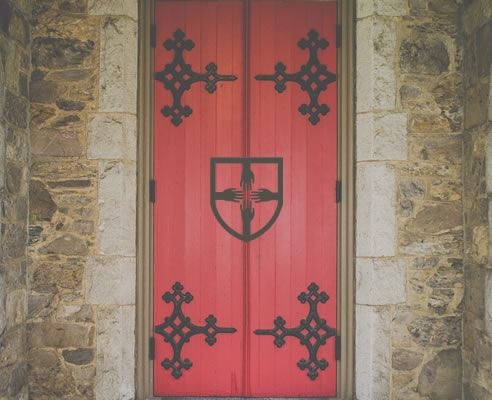
Waiting…for what?
Once again, the old year has rolled ‘round, and we cross the threshold into the new. Advent is my favorite liturgical season: the light at night, the rich colors in church, and the music that gives voice to longing. At my age, one might imagine that I know what to expect. But, every year, I am initially disoriented.
What’s really going on? What am I supposed to pay attention to? The prophecies? The manger? The Second Coming? As an addict, I tend to think in categories of either/or, rather than the confusing and uncomfortable both/and.
I’m often not very good at waiting. Of course, much of it is sheer impatience; here I’m in good company with our ancestors in faith. They, like me, prefer decisiveness…immediately.
Isaiah cries to God, “O that you would rend the heavens and come down.” The Psalmist pleads, “Restore us, O God of hosts; show us the light of your countenance, and we shall be saved.” In Mark’s gospel, we hear Jesus speak with urgency, “Therefore, keep awake—for you do not know when the master of the house will come.”
That’s a lot of anxiety. But, if I allow myself to be still, I begin to sense that Advent has a great deal in common with a 12-Step program. It never moves along as quickly as I would like, it goes places I couldn’t have predicted, and there’s a lot of work involved.
Today, when I hear the majestic language of Isaiah, Every valley shall be exalted, and every mountain and hill shall be made low, I think about the Ninth Step promises. If I have been diligent in working to level the obstructions, both within myself, and in my relationships, the promises will come true, no matter how far down the scale I had gone.
Did I want all those things to happen immediately? Of course I did. Did they? Of course not. I had stopped using, but I had no idea how to live, as an adult, on life’s terms. Time has given me the space to learn to live.
2020 has had more than its share of “life’s terms”: COVID, the economic devastation that has followed, and the cries for racial justice. It’s tempting to anesthetize the discomfort, to ask God to restore us right now, to wish it all away. But here is where we are, maxed out on waiting for things to “get back to normal”.
Recently, I found myself suggesting that Advent is an invitation for us to pay attention to the here and now, to be where our feet are. After all, we sing, “O come, O come, Emmanuel” – “O come, O come, God-with-us”. Not “God who was with us”, or “God who will be with us”, but “God who is with us”.
This year, in the quiet of these weeks, I will try to wait patiently. And, in the waiting, I hope to become attentive to God’s light peeking through the cracks in my everyday world.
Advent’s a funny time, isn’t it? What exactly are we waiting for? I know that more will be revealed. And I know that God is already with us. How blessed are we!
Paul J.
 In the early days of the Church, when the front door of the parish was painted red it was said to signify sanctuary – that the ground beyond these doors was holy, and anyone who entered through them was safe from harm.
In the early days of the Church, when the front door of the parish was painted red it was said to signify sanctuary – that the ground beyond these doors was holy, and anyone who entered through them was safe from harm.